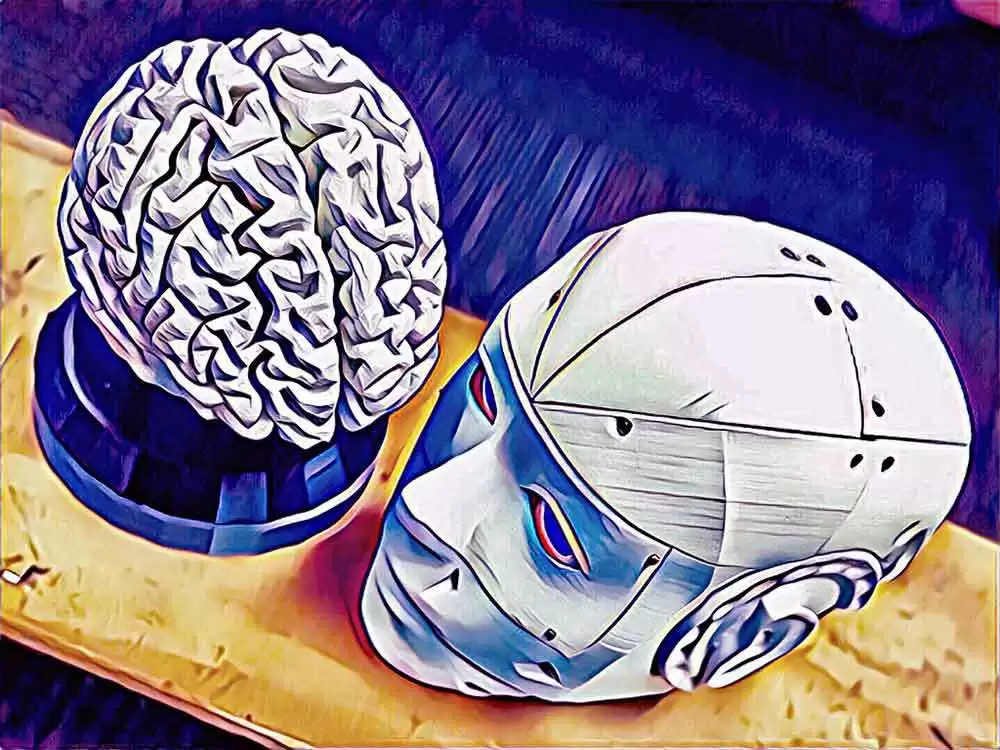
Celiac.com 06/13/2019 (originally published 07/12/2010) - Celiac disease, also known as celiac sprue or gluten-sensitive enteropathy, is a condition characterized by chronic malabsorption and damage to the small intestine mucosa when gluten is consumed. Once diagnosed with this disease, a person must adhere to a life-long diet free of gluten. Symptoms that may occur when a person with celiac disease ingests gluten include gastrointestinal discomfort such as pain, vomiting, bloating, diarrhea, inflammatory skin rashes, fatigue, hair loss, mouth sores, and loss of dental enamel. Long-term complications may include decreased bone density, infertility, and lymphoma of the small intestine (Ciclitira & Lamont, 2009). There is a documented association between celiac disease and other conditions such as type I diabetes (Gale, 2008); however more research is needed to understand the nature of these relationships. Sometimes even strictly adhering to a gluten-free diet may not eliminate all symptoms and prevent the long-term complications particularly for those with more severe cases or refractory celiac disease.
Another unique aspect of celiac disease that warrants attention is that many patients are misdiagnosed or have gone through lengthy procedures to identify their illness (Kostopoulou, Walsh & Delaney, 2009). Epidemiological studies suggest that celiac disease occurs in approximately 0.5%-1.0% of the U.S. population, yet the disease continues to be under diagnosed. One explanation for the rate of undiagnosed cases is limited knowledge regarding the clinical presentation of celiac disease among primary care physicians (Kostopoulou et al., 2009). Celiac disease has a range of symptoms, which can vary dramatically, and silent cases with atypical symptoms that are not manifest in overt gastrointestinal symptoms may be overlooked.
Celiac.com Sponsor (A12):
Awareness of celiac disease has dramatically increased over the past decade. This is likely because an increasing number of clinical studies have focused on improving the diagnostic tests and treatments for this disease. However, research has just recently begun to address the psychological and quality of life issues associated with having celiac disease. The purpose of this article is to provide some information on the psychological symptoms associated with celiac disease, the motivators of effective management of this disease, and strategies that may be useful in preventing the negative psychological consequences that are often associated with celiac disease.
Psychological Symptoms
Research has uncovered numerous psychological symptoms that accompany celiac disease, ranging from anxiety and depression to increased risk for eating disorders and schizophrenia (Leffler, Dennis, George, & Kelly, 2007). Other related conditions include decreased affect, known as alexthymia, and migraine headaches. Although one might assume that some of these psychological issues could accompany any chronic health condition and be explained by the stress and adjustment involved in managing a chronic disease, celiac disease presents unique mental health challenges. The nature of this disease interferes with the absorption of essential nutrients and amino acids necessary to maintain adequate levels of serotonin and puts one at risks to experience a “depressed” state characterized by malaise, fatigue and flattened mood. Indeed, there appear to be both physiological and psychological contributors to the mood changes associated with celiac disease.
Some research suggests that gastrointestinal diseases such as celiac disease are correlated with certain personality traits/dispositions (George et al., 2009). Personality features, such as being anxious, interpersonally sensitive or prone to depression are often present prior to the diagnosis of celiac disease and may exacerbate the disease. Indeed, a person with celiac disease who struggles with stress and anxiety may allow these emotions to impede with consistent engagement in dietary adherence and exercise, both of which are important to live well with celiac disease. Clearly, it is critical to address the psychological issues associated with celiac disease. This can be done by including stress and anxiety reduction exercises and/or counseling as critical parts of the treatment of celiac disease.
The extended time and diagnostic procedures often needed to arrive at an accurate diagnosis of celiac disease can also have a psychological toll on individuals with this disease. For instance, frustration, mistrust of doctors, feelings of powerlessness, hopelessness, and resistance to adhering to providers’ treatment recommendations are among possible reactions at some point during the celiac diagnosis process. In fact, stress and psychological diagnoses are sometimes given in the absence of a biological explanation for patients’ symptoms of celiac disease. It is not uncommon for patients to go through the stressful process of “doctor shopping” before they are accurately diagnosed with celiac disease.
The importance of family support cannot be underestimated in the process of diagnosing and managing celiac disease. Research shows that having the support of one’s family and friends plays a large role in how well one manages their chronic illness (Dimatteo, 2004). In fact, one study found that consistent support from a loving, cohesive family can increase adherence to medical advice, such as to eat a healthy diet, nearly two-fold. These studies underscore the importance of informing one’s family of a celiac disease diagnosis and asking for their support in managing the disease, especially when first diagnosed (Gallant, 2003). Often times, family members may have little to no knowledge of a disease such as with celiac disease, and learning about the disease together can improve both your own control over it and the support you receive from your family. Navigating the process of learning about celiac disease and the gluten-free lifestyle together will help family members better understand the unique challenges of living with celiac disease.
Motivators and Barriers
Engaging in healthy eating, including eating gluten free foods, and engaging in regular moderate-to-intense physical activity are central to successful management of celiac disease. However, sustaining the occurrence of these behaviors over time requires motivation to engage in these behaviors and awareness of strategies for overcoming the barriers to the occurrence to these behaviors. Specific motivators for engaging in healthy eating by individuals with celiac disease include the following: (a) experiencing or being made aware of the severe symptoms that come with this disease as a result of unhealthy eating, (b) having family members and friends who buy and eat healthy foods, including gluten free foods (i.e., family and social support), (c) and being a part of a celiac disease advocacy group. It is also noteworthy that personal traits such as conscientiousness and valuing of health predict adherence to a gluten free diet (Edwards, Franko, Leftler, Dennis, & Blom-Hoffman, 2009). Additionally, there is research evidence that knowledge regarding a gluten free diet and being involved in a celiac disease advocacy group also predict adherence to a gluten free diet (Leffler, Edwards-George & Dennis et al., 2008).
Specific motivators for engagement in routine moderate-to-intense physical activity by individuals with celiac disease include the following: (a) awareness that routine physical activity is a great way to reduce and prevent stress and stress related migraine headaches, (b) having a partner (child or adult family member or friend) with whom to engage in physical activity, and (c) participating in walking groups and dance classes in one’s community that are convenient. More research is needed to evidence the impact of routine physical activity on the symptoms of celiac disease, as the empirical findings from such research will likely serve as additional motivators for physical activity among individuals with celiac disease. Exercise could potentially offset the risk of fractures and decreased bone density associated with celiac disease.
Health Self-Empowerment Theory
Management of celiac disease requires that individuals with this disease feel empowered to do so under whatever conditions that exist in their lives (.e.g., without family or friend support ). According to Health Self-Empowerment (HSE) Theory engaging in health promoting behaviors such as those necessary to manage celiac disease requires motivation to engage in these behaviors, perceiving control in relation to these behaviors, self-praise of these behaviors when they occur, coping skills for effectively dealing with stress and depression that often result in unhealthy eating and not exercising, and having a sense of responsibility for one’s own health (Tucker, Butler, Loyuk, Desmond, & Surrency, 2009). Support groups and short-term counseling are ideal venues for promoting these HSE Theory variables. Psychologists who work in primary care centers are perfectly suited to provide this counseling; however, individuals living well with celiac disease are also ideally suited to lead such support groups. Below are some example strategies for applying HSE Theory to patients living with celiac disease:
- Identify an interdisciplinary health team that works collaboratively with the patient in managing the disease.
- Empower patients to learn about celiac disease so they are knowledgeable about their role in managing the disease.
- Involve the patient in reading and understanding lab, serology, and endoscopy results.
- Encourage involvement in support groups and activism related to celiac disease.
- Teach self-praise in response to healthy choices consistent with the gluten-free lifestyle.
- Teach coping skills and stress reduction, emphasize family support, and help the patient identify positive health influences.
Tips from Dr. Carolyn Tucker
- It is important for individuals with celiac disease to prepare for their visit with their healthcare provider by preparing a list of psychological and physical symptoms, concerns, and questions before the visit to present to their provider at the beginning of the health care visit. It is also important to have a tape recorder or note-taker to write the answers provided by the health care provider.
- Critical to effective management of celiac disease is learning and using assertiveness skills, which are skills to respectfully but confidently ask for the health care behaviors and information desired from health care providers. It is also important to send a commendation note or letter to providers who provide desired health care, as such notes/letters motivate providers to sustain desired health care provision.
- It is critical that individuals with celiac disease avoid stress by saying “no” to what they do not want to do and learn to seek help when feeling overwhelmed. It is also important that individuals with celiac disease ask for the support from family and friends.
- It is helpful for individuals with celiac disease to manage their depression and stress by (a) talking about these problems with a trustworthy family member, friend, spiritual leader, or counselor/psychologist, (b) assessing what activities made them happy in the past and doing those activities, (c) learning to meditate, pray, and/or use muscular relaxation, and (d) forming supportive friendships with individuals who are living well with celiac disease.
- It is useful for individuals with celiac disease to take control of their health by engaging in health promoting behaviors and praising themselves for doing so. This requires giving priority to yourself so that you can be physically and psychologically able to express love to others.
Note: Article co-authors: Carolyn M. Tucker, Ph.D., & Logan M. Pyle. Health Self-Empowerment Theory was developed by Dr. Carolyn Tucker at the University of Florida.
References:
- Ciclitira, P. & Lamont, J. (2009). Management of Celiac Disease in Adults. Retrieved December 4, 2009, from Up To Date website: www.uptodate.com
- Edwards George, J.B., Franko, D. L., Leffler, D. A., Dennis, M.D., Kelly, C. P., & Blom-Hoffman, J. (2009). Psychological correlates of gluten-free diet adherence in adults with celiac disease. Journal of Clinical Gastroenterology, 43, 301-306.
- DiMatteo, Robin. (2004). Social support and patient adherence to medical treatment: A meta analysis. Health Psychology, 2(2), 207-218.
- Gale, K. (2008, December 10). Type 1 Diabetes and Celiac Disease Share Several Common Susceptibility Alleles. Retrieved December 4, 2009, from Reuters website: www.celiac.org
- Gallant, M. (2003). The influence of social support on chronic illness self-management: A review and directions for research. Health Education & Behavior, 30(2), 170-195.
- Leffler, D.A., Dennis, M., George, J.B., & Kelly, C.P. (2007) The interaction between eating disorders and celiac disease: An exploration of 10 cases. European Journal of Gastroenterology and Hepatology, 19(3), 251-255.
- Leffler, D.A., Edwards-George, J.B., Dennis, M., Schuppan, D., Cook, F., Franko, D.L., Blom Hoffman, J., & Kelly, C.P. (2008). Factors that influence adherence to a gluten-free diet in adults with celiac disease. Digestive Diseases and Sciences, 53(6), 1573-1581.
- Kostopoulou, O., Devereaux-Walsh, C. & Delaney, B.C. (2009). Missing celiac disease in family medicine: The importance of hypothesis generation. Medical Decision Making, 29(3), 282-90.
- Tucker, C.M., Butler, A.M., Loyuk, I.S., Desmond, F.F. & Surrency, S.L. (2009) Predictors of a health-promoting lifestyle and behaviors among low-income African American mothers and White mothers of chronically ill children. Journal of the National Medical Association, 101(2), 103-10.
- Tucker, C.M. & Rice, K.G., Hou, W., Kaye, L.B., Nolan, S.E., Flenar, D.J., Gonzales, L., Smith, M.B., & Desmond, F.F. (2010). Motivators of and Barriers to Health-Smart Behaviors Inventory (MB-HSBI). Manuscript submitted for publication.











Recommended Comments
Create an account or sign in to comment
You need to be a member in order to leave a comment
Create an account
Sign up for a new account in our community. It's easy!
Register a new accountSign in
Already have an account? Sign in here.
Sign In Now